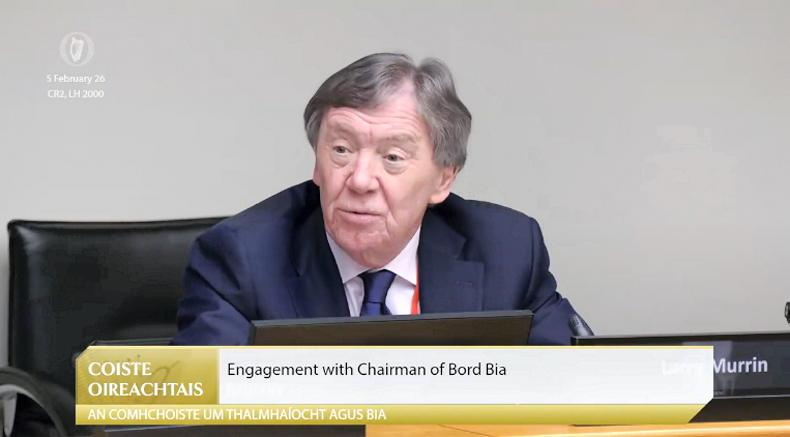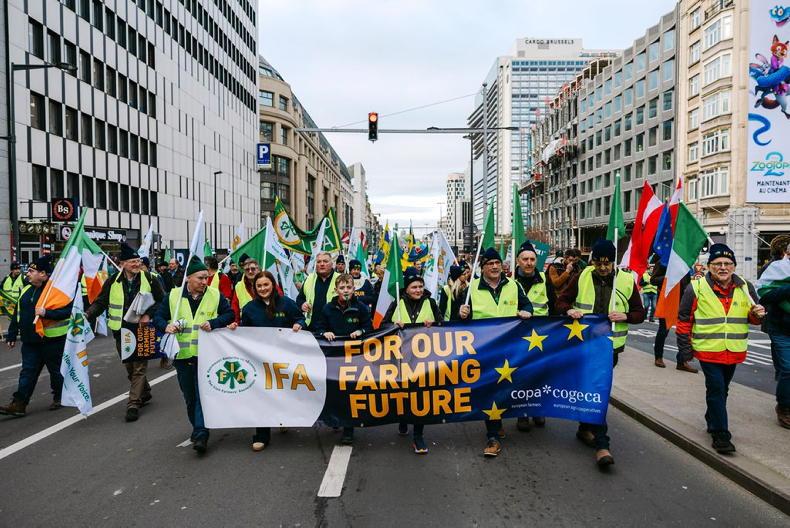This time five years ago, the Programme for Government in relation to agriculture was dominated by a determination to cut emissions in the sector at whatever cost.
This view coincided with a similar view in Brussels at the start of the European Commission term, with the Green Party having had a good European Parliament election, as well as being part of the Irish Government.
This time, while the new Irish Government and Commission terms remain largely aligned, the make-up of the Irish Government has changed, with independents replacing the Green Party.
Climate versus output
While the words in the Programme for Government remain strong on climate, they are also strong on the special place of agriculture in the Irish economy.
However, any change at national level won’t mean a complete change of direction, because Ireland has to fit within the EU’s reduction targets or else face penal fines for not doing so.
We can expect that the incoming Government will continue the drive to reduce emissions, even if it advocates more quietly on the subject and all of the core legislation to do so remains in place.
One area that should be prioritised with investment and incentives is in delivering the reductions that can be achieved and identified in the Teagasc marginal abatement cost curve (MACC).
Parallel to this, investment should continue in research to find more ways to reduce emissions without cutting production.
It remains an irony that the country with one of the lowest levels of emissions per kilo of meat or litre of milk should be the only one that has a plan that requires production to be cut to achieve a target that is set in legislation.
Trade
Aside from production, Irish farmers will be looking at what policy the new Government adopts in relation to trade. This is particularly difficult, especially in relation to Mercosur, because while it may hit beef producers hard, it has a fairly neutral effect on the rest of agriculture and there are also many sectors of the Irish economy that would benefit from it.
There is also a chance that if beef prices hold around current levels or improve further as this year progresses, a view may be taken that the EU and UK market will be strong enough to withstand extra competition. That would be a high-risk strategy with beef producers carrying the risk.
Staying with trade, the new Government will come into office at the same time as Donald Trump returns as president in the US.
He was a strong advocate of import tariffs during his campaign on countries that the US had a negative trade balance with.
That puts lucrative Irish dairy exports to the US at risk and deft political skills will be required to persuade the incoming president to exclude Ireland from tariffs.
Even if this is successfully achieved, if he pursues tariffs elsewhere, such as China, the knock-on effect is a potential risk for Irish farmers who are dependent on export trade.
The newly enhanced Department of Foreign Affairs will be important to farmers in managing and mitigating this risk.
Positives
One thing the new ministerial team in agriculture will be grateful for is that they are coming into office at a time when prices are reasonably good and there isn’t an immediate income crisis in farming, even if profitability outside of dairy remains very low.
Also, in the midst of the bad weather last summer, a fodder crisis this winter was feared, but thanks to the benign autumn this risk has receded.
Let the motto for this Government be keep producing and reducing emissions per kilo and litre of output at the same time, it shouldn’t be an either/or choice.
Read more
Heydon tipped for agriculture
Draft programme for government lacks financial commitments for farming - IFA
Revealed: programme for government and new agriculture ministers
This time five years ago, the Programme for Government in relation to agriculture was dominated by a determination to cut emissions in the sector at whatever cost.
This view coincided with a similar view in Brussels at the start of the European Commission term, with the Green Party having had a good European Parliament election, as well as being part of the Irish Government.
This time, while the new Irish Government and Commission terms remain largely aligned, the make-up of the Irish Government has changed, with independents replacing the Green Party.
Climate versus output
While the words in the Programme for Government remain strong on climate, they are also strong on the special place of agriculture in the Irish economy.
However, any change at national level won’t mean a complete change of direction, because Ireland has to fit within the EU’s reduction targets or else face penal fines for not doing so.
We can expect that the incoming Government will continue the drive to reduce emissions, even if it advocates more quietly on the subject and all of the core legislation to do so remains in place.
One area that should be prioritised with investment and incentives is in delivering the reductions that can be achieved and identified in the Teagasc marginal abatement cost curve (MACC).
Parallel to this, investment should continue in research to find more ways to reduce emissions without cutting production.
It remains an irony that the country with one of the lowest levels of emissions per kilo of meat or litre of milk should be the only one that has a plan that requires production to be cut to achieve a target that is set in legislation.
Trade
Aside from production, Irish farmers will be looking at what policy the new Government adopts in relation to trade. This is particularly difficult, especially in relation to Mercosur, because while it may hit beef producers hard, it has a fairly neutral effect on the rest of agriculture and there are also many sectors of the Irish economy that would benefit from it.
There is also a chance that if beef prices hold around current levels or improve further as this year progresses, a view may be taken that the EU and UK market will be strong enough to withstand extra competition. That would be a high-risk strategy with beef producers carrying the risk.
Staying with trade, the new Government will come into office at the same time as Donald Trump returns as president in the US.
He was a strong advocate of import tariffs during his campaign on countries that the US had a negative trade balance with.
That puts lucrative Irish dairy exports to the US at risk and deft political skills will be required to persuade the incoming president to exclude Ireland from tariffs.
Even if this is successfully achieved, if he pursues tariffs elsewhere, such as China, the knock-on effect is a potential risk for Irish farmers who are dependent on export trade.
The newly enhanced Department of Foreign Affairs will be important to farmers in managing and mitigating this risk.
Positives
One thing the new ministerial team in agriculture will be grateful for is that they are coming into office at a time when prices are reasonably good and there isn’t an immediate income crisis in farming, even if profitability outside of dairy remains very low.
Also, in the midst of the bad weather last summer, a fodder crisis this winter was feared, but thanks to the benign autumn this risk has receded.
Let the motto for this Government be keep producing and reducing emissions per kilo and litre of output at the same time, it shouldn’t be an either/or choice.
Read more
Heydon tipped for agriculture
Draft programme for government lacks financial commitments for farming - IFA
Revealed: programme for government and new agriculture ministers










SHARING OPTIONS